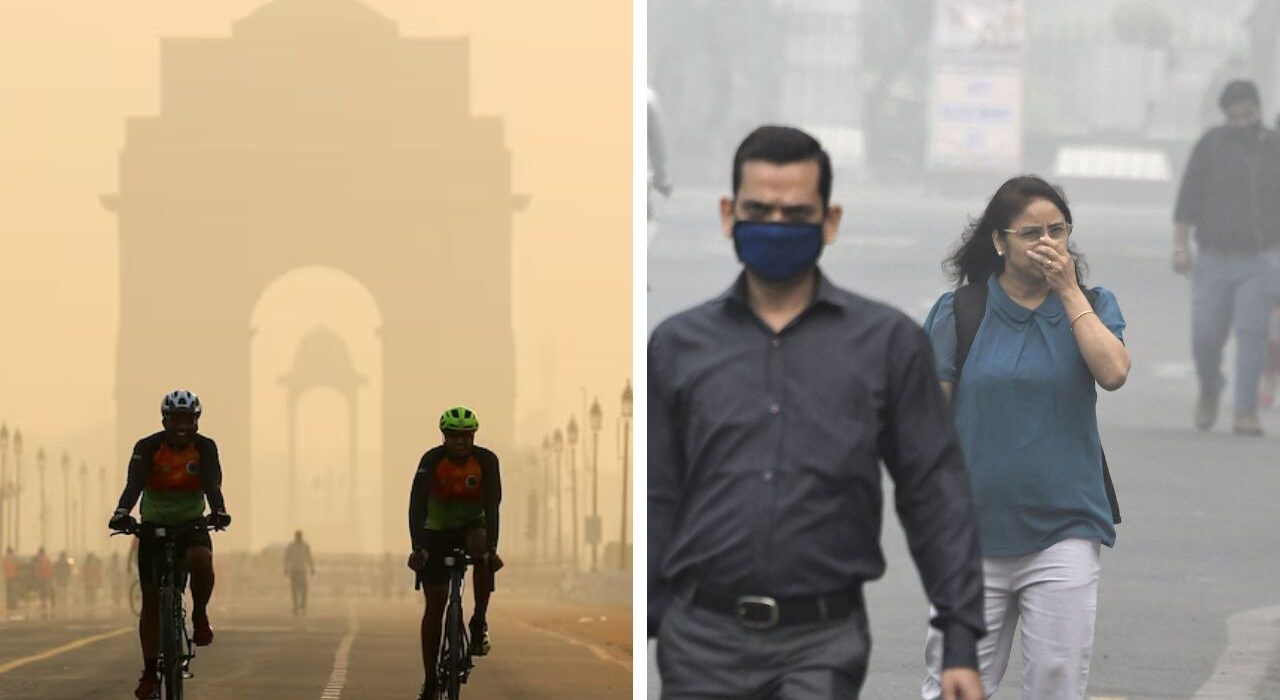The life expectancy in Delhi falls by 7.8 Years due to bad air. Life expectancy is the average number of years a person is expected to live. It is calculated based on the year of birth and current age. This measure assumes that the death rates at each age will stay the same throughout a person’s life. To find life expectancy statisticians use data on how many people die at each age. They often get this information from national censuses and vital statistics. Life expectancy can vary a lot depending on factors like sex, race and where someone lives.
Air quality is very important for how long people live. Bad air which is full of tiny harmful particles can make life shorter. These small particles can get deep into the lungs and even into the blood and this can cause serious health problems like heart disease and lung infections. Research shows that breathing in polluted air can cut life expectancy by almost two years and this is worse in places where there are no strong pollution controls.
Life Expectancy In Delhi Falls By 7.8 Years due to Air Pollution
Delhi’s air quality is one of the worst in the world as the city often suffers from high levels of harmful particles like PM2.5. These are tiny particles that can enter the lungs and bloodstream and the pollutants in the air come from many sources such as vehicle emissions, industrial activities and construction dust. Delhi had an average PM2.5 level of 84.3 µg/m3 in 2022 and the average of this in terms of national standards is 40 µg/m3. The thick smog that covers the city especially in winter is a clear sign of this pollution. This bad air has serious health effects on the people of Delhi as life expectancy in Delhi falls by 7.8 Years due to bad air.
The life expectancy in Delhi falls by 7.8 Years due to bad air. People in Delhi are living shorter lives because of the bad air they breathe every day as the harmful particles in the air can lead to major health problems like asthma, lung cancer and heart disease. Children and the elderly are at a higher risk of these health issues as constant exposure to such high pollution levels is harming the health and lifespan of Delhi’s residents as life expectancy in Delhi falls by 7.8 Years due to bad air.
Also Read: Women Is The Sole Owner Of ‘Streedhan’ And Fathers Cannot Claim It After Marriage
How Air Pollution Could Be Controlled?
If Delhi’s air quality gets better the life expectancy of its people could go up by 7.8 years. Cleaner air would mean fewer health problems and longer and healthier lives. Efforts to cut down pollution like stricter controls on emissions and better waste management could make a big difference. Planting more trees and creating green spaces can also help improve air quality. These changes would not only improve people’s health but also enhance the overall quality of life in the city.
Improving Delhi’s air quality is a tough but necessary task. It needs coordinated efforts from the government, industries and the public. Policies must be enforced to reduce emissions from vehicles and factories. Public awareness campaigns can help educate people about the importance of reducing pollution. Simple actions like using public transport, cutting down waste and supporting green initiatives can make a big impact.
Also Read: Husband And Wife Must Have 5-7 Years Of Age Difference According to Chanakya
